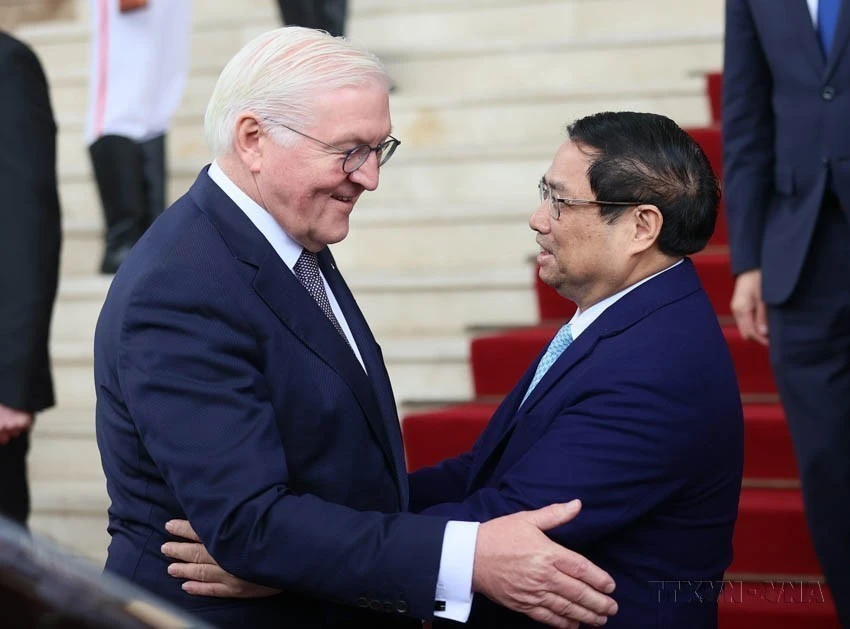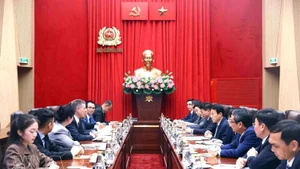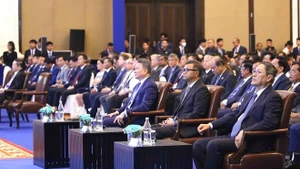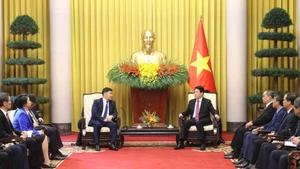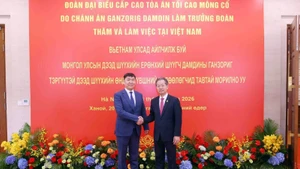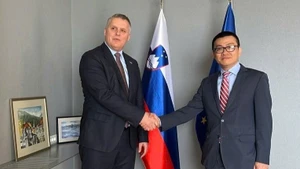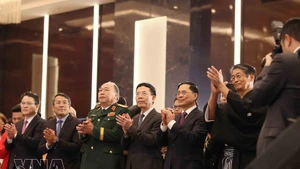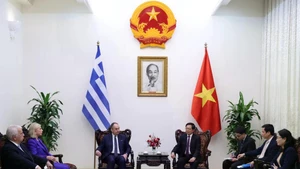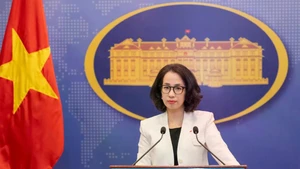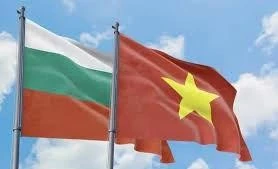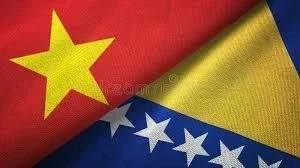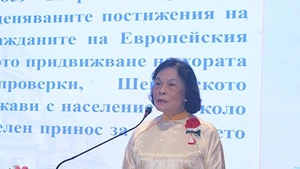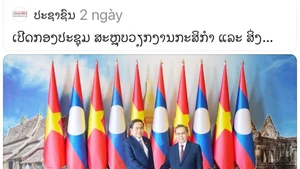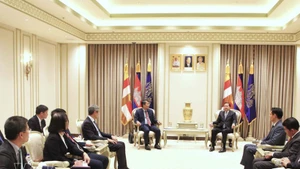Half a century of substantive cooperation
In the last 50 years, friendship and collaboration between the two nations have flourished in politics, diplomacy, economy, education, and local-level exchanges.
The relationship reached a milestone in October 2011 with the signing of the Ha Noi Joint Statement on a Strategic Partnership for the Future, followed in July 2025 by the Joint Statement establishing the Viet Nam–Germany Energy Partnership. Under the 2023–2025 Strategic Action Plan, five priority areas were identified: reinforcing commitment to a rules-based order and expanding security policy cooperation; deepening economic ties and connectivity while promoting energy and digital transformation; fostering a forward-looking partnership on climate, energy, and the environment; enhancing cooperation in education, science, technology, and innovation; and strengthening people-to-people exchanges.
Regular high-level visits have injected fresh impetus into the partnership. Notable engagements include German President Frank-Walter Steinmeier and his spouse’s State visit to Viet Nam in January 2024, Prime Minister Pham Minh Chinh’s meeting with German Chancellor Olaf Scholz on the sidelines of the G20 Summit in Rio de Janeiro in November 2024, and Vice President Vo Thi Anh Xuan’s participation in the Global Women’s Summit in Berlin in July 2025.
Party and people-to-people diplomacy have also expanded. Defence and security cooperation has recorded significant progress, becoming a key pillar of the strategic partnership amid growing global geopolitical challenges.
The two sides have established effective dialogue and cooperation mechanisms such as the Strategic Dialogue, Foreign Policy Consultation, and Joint Committees on Economic and Scientific-Technical Cooperation. At multilateral forums, Viet Nam and Germany share common views on multilateralism, a rules-based international order, international law, and the principles of the UN Charter.
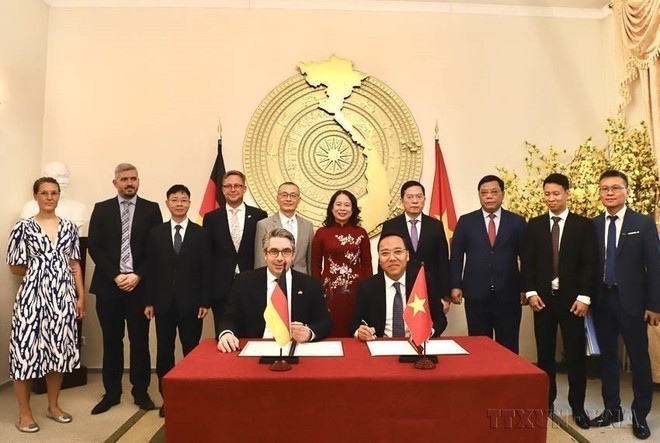
Economic and trade cooperation: A key driver
Germany is Viet Nam’s top trading partner in the EU, its 12th largest globally, and the fourth-largest European investor in the country.
Two-way trade grew sharply from 5.6 billion USD in 2011 to 11.1 billion USD in 2024. German businesses are increasingly attracted to Viet Nam’s investment environment as part of efforts to diversify supply chains and reduce overdependence on single markets.
According to Vietnamese Ambassador to Germany Nguyen Dac Thanh, the two economies are highly open and complementary, with dynamic enterprises on both sides driving cooperation. Labour and vocational training partnerships are being actively promoted to meet Germany’s demand for skilled workers.
The Ambassador also emphasised the importance of early ratification of the EU–Viet Nam Investment Protection Agreement (EVIPA) to unlock new opportunities. Vietnamese businesses are encouraged to leverage the EU–Viet Nam Free Trade Agreement (EVFTA) to expand exports to Germany, particularly in agriculture, textiles, and electronics. Meanwhile, German firms are encouraged to invest in new areas such as digital and energy transition, international financial centre, and large-scale infrastructure projects including high-speed rail, airports, and energy, sectors prioritised by Viet Nam.
Beyond trade and investment, cooperation continues to expand in law and justice, science and technology, education, health, culture, society, and tourism. Germany is among Viet Nam’s top ten markets in terms of visitor spending.
Cultural exchanges also play an important role. The Goethe-Institut in Ha Noi remains a hub for German language teaching and cultural promotion. In recent years, art performances, exhibitions, culinary events, and traditional festivals organised by the Vietnamese community have helped present Viet Nam’s image and enrich the multicultural landscape of German cities, particularly Berlin.
Towards a new phase of development
The year 2025 marks two important milestones: the 50th anniversary of diplomatic relations (1975–2025) and the 14th anniversary of the Strategic Partnership (2011–2025). To celebrate, both countries have co-hosted a series of commemorative events aimed at deepening cooperation and exploring new areas of collaboration.
In July 2025, during her trip to Germany for the Global Women’s Summit and other bilateral activities, Vice President Xuan attended the unveiling of the Viet Nam–Germany Bear statue at the Vietnamese Embassy. Symbolising Berlin as well as hospitality, strength, solidarity, and friendship, the statue reflects the spirit of bilateral ties.
On September 9, 2025, the Vietnamese Embassy in Germany held a ceremony marking Viet Nam’s 80th National Day (September 2, 1945) and the 50th anniversary of diplomatic relations between the two countries.
Marking five decades of ties, Viet Nam and Germany look ahead to a future of more comprehensive and enduring partnership.
